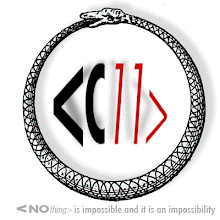
In the 20th C the 'typical' museum and/or art gallery in the imagination of the colonised and colonising world was an institution steeped in romantic visions of the classics, empire and hegemonic belief systems – albeit increasingly reflective visions as the century drew to a close. Overlaid on this came the celebration of the industrial era that was fueled by the socioeconomic Industrial Revolution that in turn fueled European expansionism and ultimately globalism.
In one way or another the collections held in museums in the Western world were/are essentially plunder of one kind or another that reflected 18th and 19th Century imperatives. The British Museum would be one exemplar that has set down some of the key museum protocols and practices that linger in current museology. However, by the last two decades of the century the world that museum’s were attempting to make sense of was changing at a pace unimaginable in the times, and the cultural dynamics, that shaped museums and museology practices.
In the 21st C comfortable reflections of the past no longer go unchallenged and especially so in public museums that rely on public funding to maintain their programs. There are newer sets of expectations in respect to accountability. Indeed, museology itself is increasingly of interest to researchers and once tight divides between disciplines are blurring. Against this background Communities of Ownership and Interest are looking to:
- Engage with museums’ leadership and management;
- Museums as a source of critically important information;
- The institution’s set of goals as a measure of their relevance to contemporary social and cultural realities;
- Drive museums’ programs toward strategic alliances and financial success;
"Museums are unique institutions with the potential both to develop and to explain new knowledge and its significance to the general public. By engaging society in a guided conversation about their world, museums can learn about the societal context of their knowledge. Museums have the potential to participate in shaping our collective futures by bringing their research, exhibition programming, and heritage collections together with society’s interests into integrated programs. In the face of a rapidly growing need to examine environmental, cultural, and socio-economic problems, people are turning to institutions or sources that will address global problems at local levels." Leading Museums into the Future .... read more here
In the case of museums auspiced by local government in Tasmania the Local Government Act 1993 provides for:
(1) A council may establish a controlling authority with the following functions:
(a) to carry out any scheme, work or undertaking on behalf of the council;
(b) to manage or administer any property or facilities on behalf of the council;
(c) to provide facilities or services on behalf of the council;
(d) to carry out any other functions on behalf of the council."
.... read more here


No comments:
Post a Comment